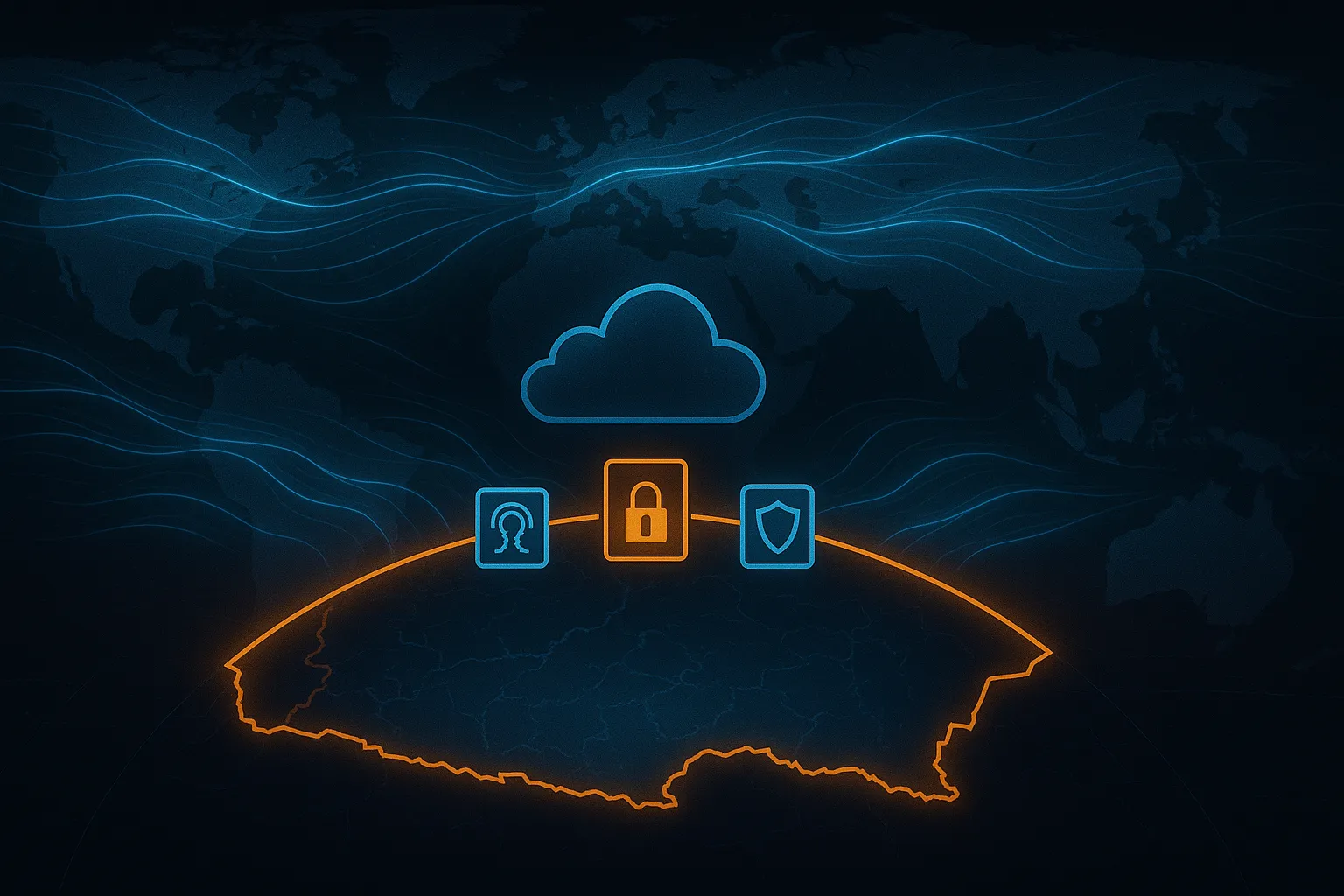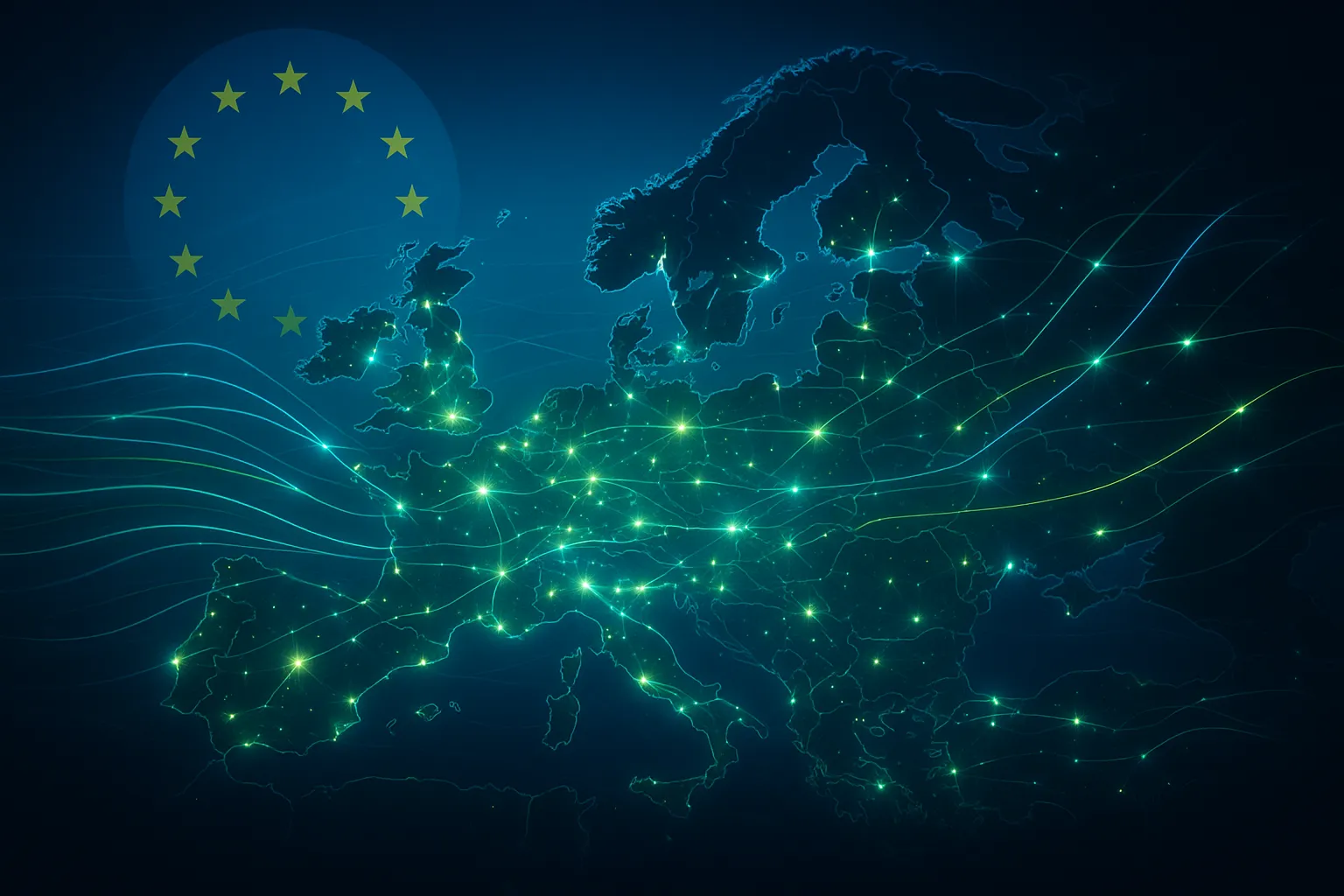Who really owns your data? Comparing European sovereign cloud providers
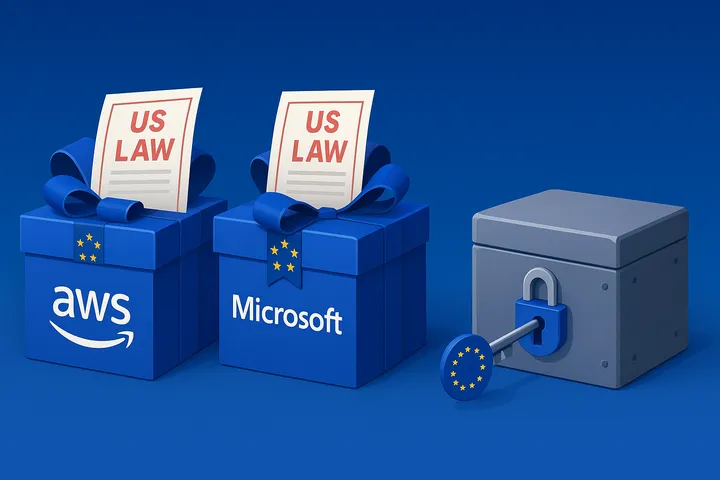
European companies face a big decision
EU businesses face a big decision right now. Do they trust the “sovereign cloud” promises from US hyperscalers like AWS and Microsoft Azure, or do they move to a genuinely European sovereign cloud? The difference may not seem obvious at first glance. Most providers talk about GDPR, data residency, or EU regional options. But is that enough when you want actual sovereignty?
CIOs across Europe are asking the same question. Is the AWS European Sovereign Cloud really sovereign, or is it still under US law? Does the Microsoft European Sovereign Cloud actually give independence, or are there strings attached?
Let us walk you through the real story. We compare AWS, Microsoft, and SpaceTime. Not just because we want to sell our service (well, we do) but because many do not fully understand what sovereignty really means in practice. Then we explain why European-native providers might just be the answer for businesses that need to keep their data safe, compliant, and truly European.
By the end, you should see what a true European sovereign cloud looks like.
What is the European Sovereign Cloud?
The term gets thrown around a lot, but it is worth slowing down to define it: A European sovereign cloud is not simply a data center placed somewhere in the EU. And it is certainly not just a long compliance checklist with boxes ticked. True sovereignty means three things.
- EU jurisdiction only. Your data cannot be subject to foreign laws such as the US CLOUD Act.
- EU governance. The decision-making power is European, not just a local front for a global parent.
- EU values. Privacy, transparency, accountability, and legal frameworks like GDPR and NIS2 baked in from the start.
That is why SpaceTime exists. Its mission is to deliver the real European sovereign cloud and not an imitation, not a marketing exercise, but infrastructure and governance that is European (Finnish more specifically) by design.
AWS European Sovereign Cloud GmbH
In 2023, AWS launched something called the European Sovereign Cloud GmbH in Germany. The idea is simple: Set up a German company. Operate cloud services for EU customers. Promise stronger control. In reality, the control and governance remain tied to Amazon in the US. Still, the US CLOUD Act applies. That means even with a GmbH structure, your EU data is not completely out of reach of US law.
This, of course, does not make AWS useless. It still offers one of the largest ecosystems in the world and many companies will be partly reliant on it for years to come still. But when it comes to sovereignty, AWS is a partial solution. As critics sometimes point out quietly, it is ringfenced, not truly sovereign.
For more context, AWS even runs an AWS European Sovereign Cloud blog to promote updates. They market the launch date as a milestone in EU digital infrastructure. But governance always points back to the US.
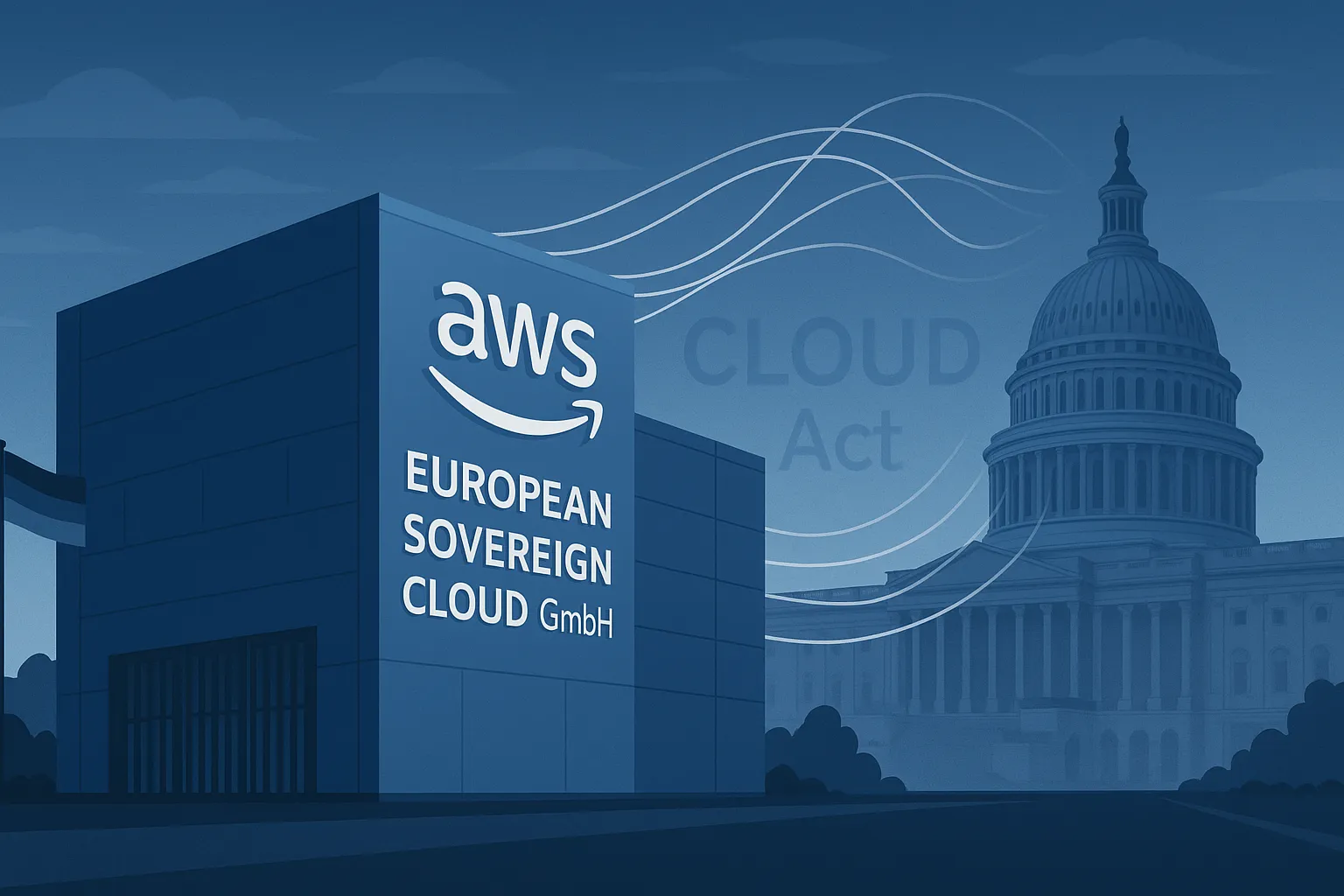
Microsoft Azure Cloud for Sovereignty
Then there is (especially for Finns) our beloved Microsoft. Microsoft followed a similar path with its Azure European Sovereign Cloud. It is marketed as the Cloud for Sovereignty and reads like an EU-oriented playbook: Azure regions in Europe, compliance tools, partnership models, aimed right at governments, regulated industries, and those sensitive about control.
The strengths are clear: Deep integrations with existing Microsoft ecosystems, a strong compliance story, partnerships with national governments across Europe. But so are the limitations because, you guessed it, Microsoft is still governed out of the US.
Legal obligations still follow the US framework. The CLOUD Act still applies. So you can check the compliance boxes, but sovereignty still has strings attached. It is like compliance as a main course with the entire US governance on the side.
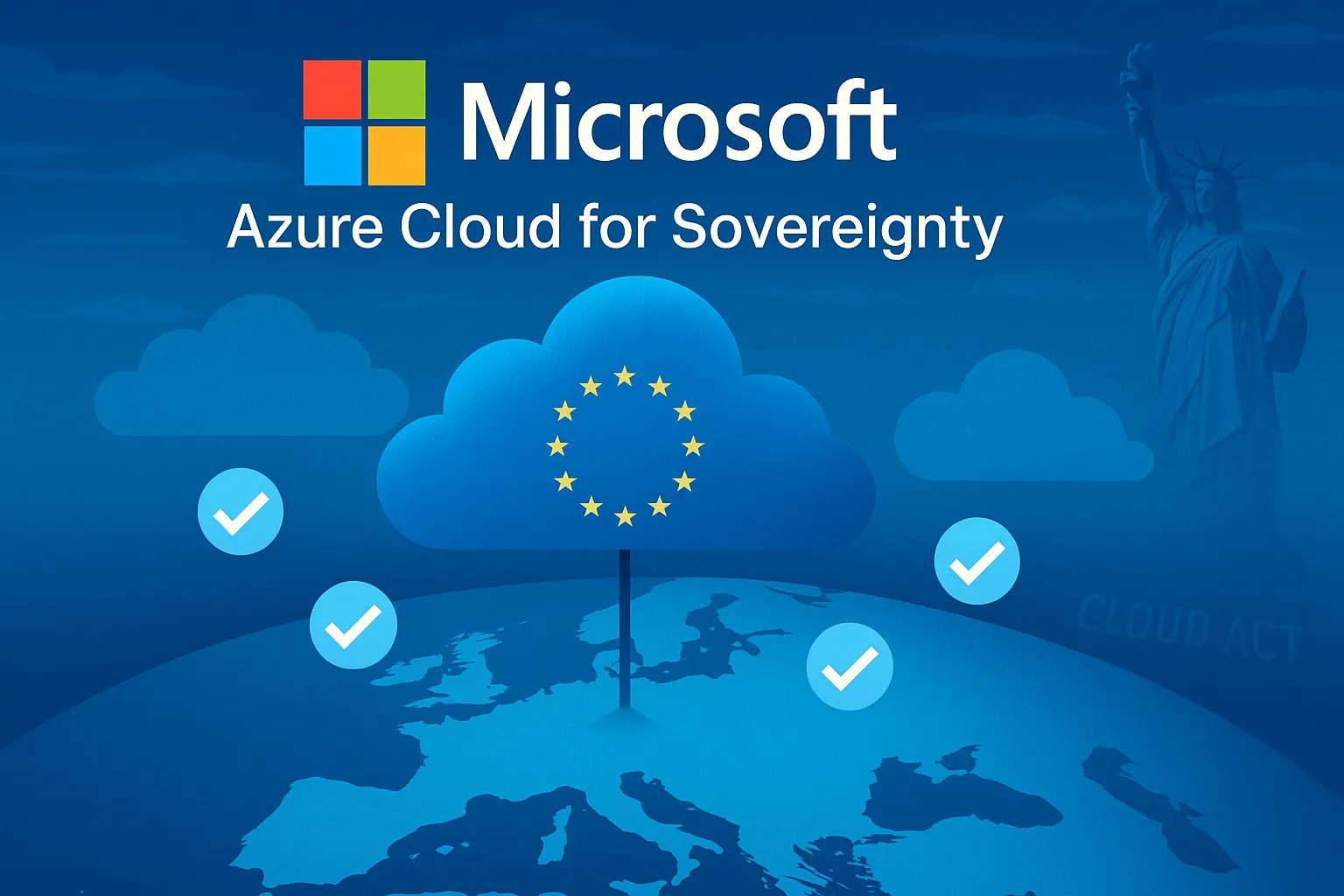
The alternative, truly European sovereign cloud providers
European sovereign cloud solutions are high on the agenda right now.
The combination of EU data laws, America’s CLOUD Act and a realisation that data is the most valuable asset for any business has put cloud firmly on the agenda. It’s easy to assume that the cloud industry is wrapped up.
Amazon, Google and Microsoft are some of the largest businesses in the world, and their cloud services have been widely adopted across the world. But the rising need for services based on European soil is disrupting the status quo, and forcing the US tech giants to be more local, while giving opportunities to cloud providers that are based in Europe.
Let’s shift the lens and dig into what this actually means for your business.
You have providers like OVHcloud, Impossible Cloud, and SpaceTime. These are EU native. That means there’s no foreign parent company. Operations run locally and the legal jurisdiction is European.
Going with European providers means there are no worries related to the CLOUD Act worries nor are there hidden leases on control. These are the fundamental reasons why data sovereignty is authentic and transparent.
Let us toot our own horn here a little but only because this is our blog and we’re writing this from the SpaceTime office in Helsinki: SpaceTime is built in Finland, designed for Europe, and responsive globally. We provide true data residency under EU law, without hidden data flows. For us, compliance is not a bolt-on or an after thought,but a core principle that’s been baked in since day one.
With open-source architectures and transparent pricing systems, we want European companies to avoid lock-ins with any provider. We are a great partner for hybrid storage solutions too, but most importantly, we represent pure European sovereignty.
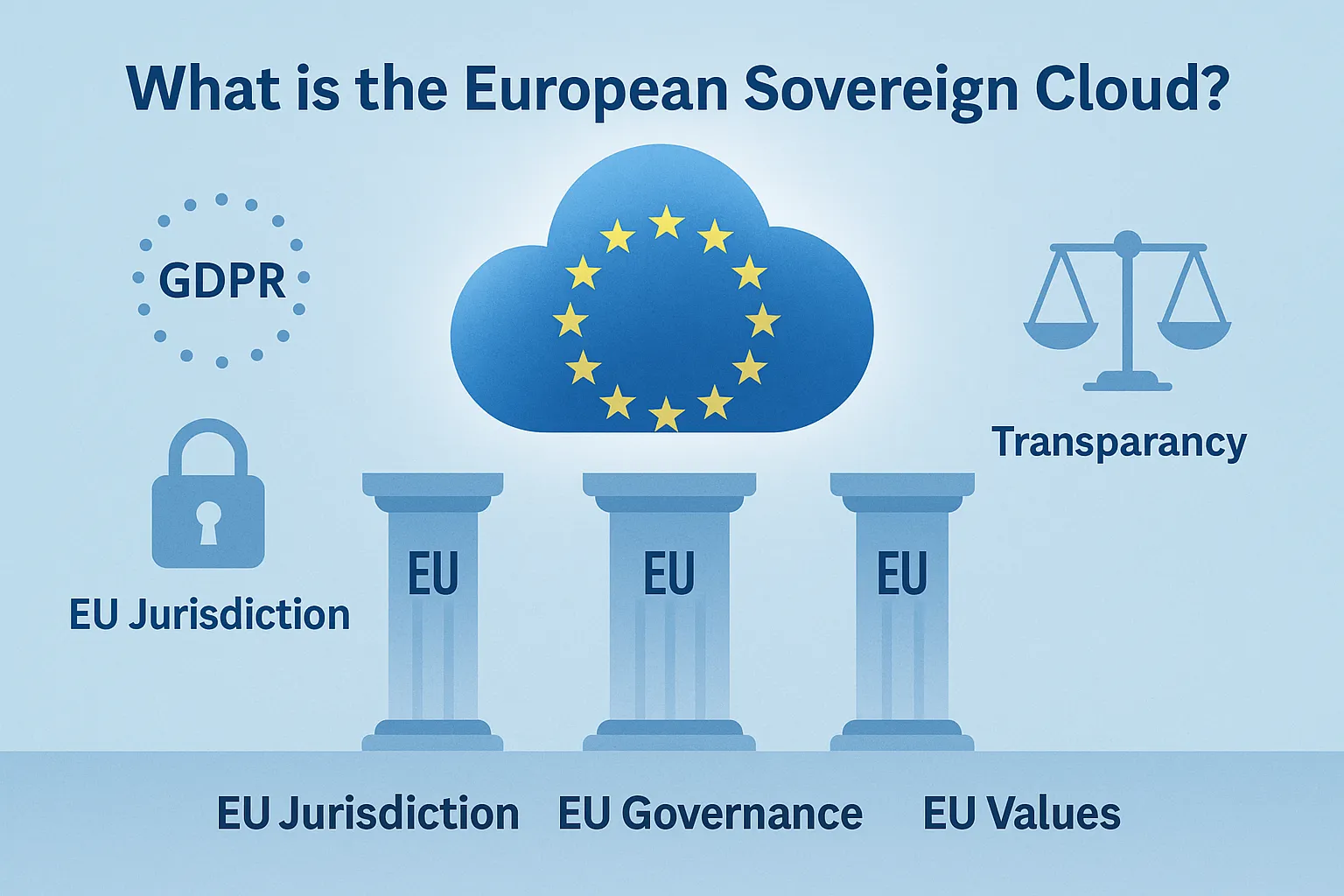
Why AWS and Microsoft are partial solutions
Let us make this real rather than theoretical. Choosing AWS or Microsoft may feel safe because they are known brands. But, in Europe, that safety is conditional, the foreign jurisdiction risks linger and compliance may be patchy.
So, if you choose AWS or Microsoft, you get scale and ecosystem. But, crucially, you will have to deal with:
- A risk of compliance gaps.
- Ongoing exposure to foreign laws.
- Vendor lock-in that can trap your strategy.
SpaceTime offers real sovereignty which means no foreign legal overreach, no governance gaps. Transparency, with clear operations and pricing. Cost-effectiveness, because you avoid complex hyperscaler pricing tiers. Flexibility, thanks to effortless scale.
And here is what it means in practice. If your business deals with sensitive data or you serve public institutions, sovereign control is critical. If you are planning for evolving regulations like NIS2 or Cyber Resilience Act, you need a provider designed with those in mind.
Tightening standards, regulatory risks
The headline may be about marketing claims versus real sovereignty, but the story is about why sovereignty matters now more than ever. EU regulators are tightening standards and businesses are facing cross-border law risks. Service providers and their customers want confidence that their data stays (and stays safe) in Europe
So, even though the Big Tech giants have their story, which is polished and powerful, they cannot represent European sovereignty. And that’s okay. European-native cloud providers do it for them: Sovereignty by design, not by label.
Hyperscalers will always play a key role for European company operations, but Europe is developing its own digital infrastructure , the importance of which will only grow over time.
Ready to see how an European alternative for hyperscalers works? Request a free trial and let us show you the difference in pricing, management, data location and speed.
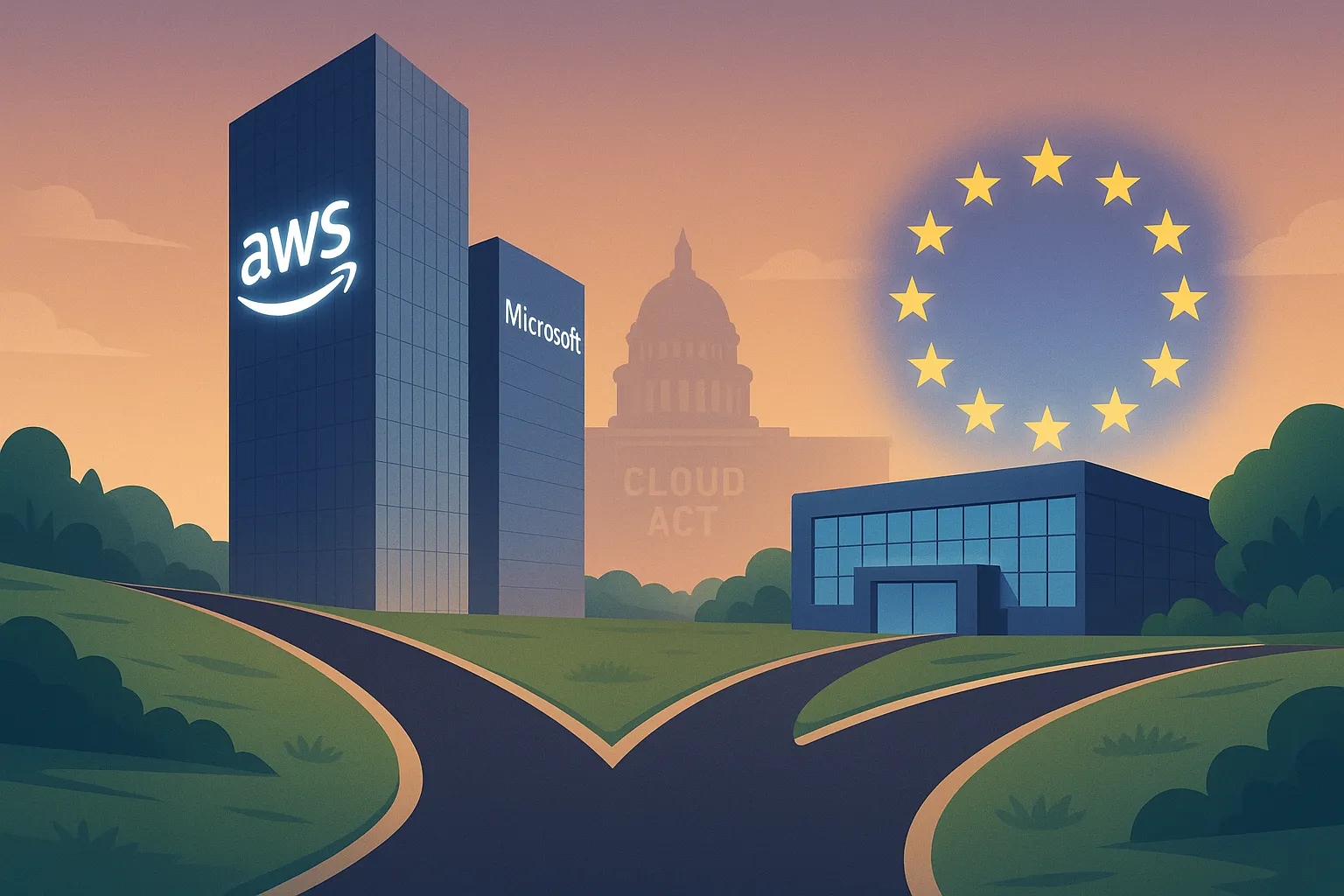
FAQ: Quick answers
What does European sovereign cloud mean?
It is a cloud environment that guarantees full EU data residency and governance. It operates solely under EU law and safeguards businesses from foreign legislative overreach like the US CLOUD Act.
What is AWS European Sovereign Cloud?
AWS set up a local German GmbH to offer sovereign-cloud–style services in Europe. But the parent company remains US-based. So foreign jurisdiction risk still applies.
What is Microsoft’s Cloud for Sovereignty?
Microsoft offers EU region services under its “Cloud for Sovereignty” banner. It includes compliance features. But governance and legal obligations remain tied to the US entity, limiting true sovereignty.
What is Google’s Sovereign Cloud?
Google has announced sovereign cloud partnerships in Europe, often working with local telecom and cloud providers to deliver compliance-focused services. While these initiatives improve data residency options and bring regional control, Google remains a US-based company.
Why choose SpaceTime?
Because it offers transparent, cost-effective EU-compliant data control. It avoids outside legal exposure, is built for compliance, and gives you predictable pricing and secure infrastructure for your critical data.

